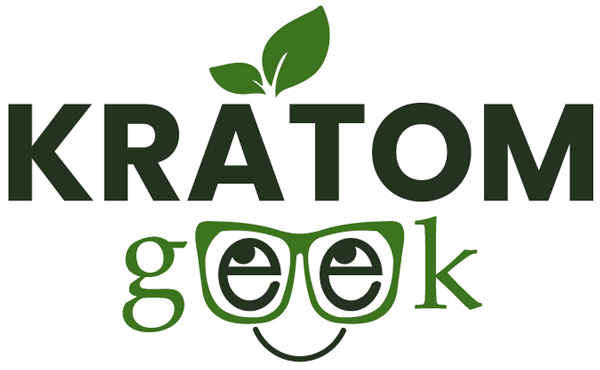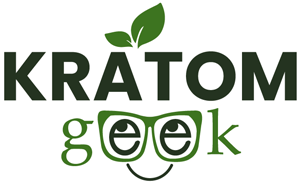At the moment, opioids are the most commonly prescribed medication for severe pain. Nothing can compete with the pain-relieving properties the compounds provide. For individuals with a terminal condition like late-stage cancers, which produces excruciating pain, prescribing medication that’s less potent is not an option. But for long-term treatment of pain using opioids, other complications can manifest in the patient. The most commonly known side effect of long-term usage is addiction. However, there are more unwanted reactions to the substance, too. One of those side effects is called an opioid-induced androgen deficiency (OPAID). And that particular endocrinopathy results from an androgen deficiency. Doctors characterize the affliction by low levels of gonadotropins: hormones secreted by the pituitary gland that stimulates activity in the gonads. In women, the hormones stimulate the ovaries to produce estrogen and progesterone. But in men, those hormones stimulate the testicles for testosterone production.
However, it is relevant to note that men also produce small amounts of estrogen and progesterone. And likewise, women create small amounts of testosterone, too. But for the most part, an abundance of the gender-dominated hormones are produced in excess for the specific sexual organs producing the desired hormones. And a deficiency in any of those hormones can cause severe complications for an individual. For example, anyone that experiences OPAID can have infertility complications. And that’s a pressing reproductive health issue. And the prevalence of patients with OPIAD ranges from 19% to 86%, depending on the criteria for the diagnosis of hypogonadism.
The Creation and Purpose of Testosterone
The hypothalamus controls the production of testosterone. It sends a signal to the testes. The testes, which are also known as testicles, are the oval-shaped sexual organs of the male that are responsible for producing spermatozoa (male reproductive cells: sperm). Without the testes, procreation by our species would not be possible. But other than their reproductive capabilities, the organs also function as an endocrine gland. The testicles produce and secrete testosterone directly into a guy’s bloodstream, which travels to tissues and organs all over a man’s body. And testosterone is essential for the physical development of muscles in an individual. It helps promote healthy bone density. The hormone also plays a vital role in a man’s sexual prowess. As levels of testosterone diminish, so does a man’s libido, which is very important for any sexually active guy.
A lack of sexual appetite can cause complications in a relationship. So it’s easy to understand why men that need pain maintenance might worry about prolonged opioid use. But luckily, some men don’t have to rely solely on an opioid for pain management. Another option is available. They can purchase kratom from several retailers. And thanks to a recent scientific experiment, the research shows that kratom has therapeutic properties that help alleviate pain.
And unlike opioids, most kratom consumers say it increases their libido. In Thailand, natives chew kratom leaves as an aphrodisiac. And some research states that kratom consumption can lead users to experience heightened sexual desires and better sexual performance.
Scientific Experiment Seeks to Supply an Answer for Kratom Users
A group of scientists decided to conduct a test to see whether kratom affected the testosterone levels in regular kratom users to see if the effects of OPAID were present. So for two months, the researchers observed the bloodwork of 19 separate male kratom users that the doctors chose for the experiment. The researchers only considered long-term kratom users to join the trial. But they couldn’t test positive for other drug use. The doctors didn’t want that to affect the results.
The participants consumed kratom extracts. The scientists extracted the alkaloid using methanol. And the mitragynine content of the tincture was determined using a validated gas chromatography-mass-spectrometry (GC-MS) method. The researchers added the extracts to juice for the subjects to drink. The alkaloid content in the samples ranged from 21.78 mg to 26.90 mg per glass. And the participants consumed an average of 3.5 glasses of juice daily. Therefore, the kratom users in the study consumed an average of 76.23 mg to 94.15 mg of mitragynine every day.
Besides opioids decreasing the amount of testosterone in patients, it also interferes with the pituitary glands. The medication limits the release of follicle-stimulating hormones (FSH) and luteinizing hormones (LH). So blood was taken from each respondent and sent off for hematology and biochemical analysis. The doctors compared those findings to the ordinary parameters for healthy men in that age group. They looked for any significant differences in the testosterone, FSH, or LH levels. They measured hematological and biochemical parameters, too.
The Results of the OPAID Study Provides Good News
The experiment tackled a medical inquiry for some potential kratom users. Studies suggest kratom can treat opioid dependency. But there are people who question whether or not the plant produces the side effects like typical opioids do. The kratom industry has a considerable size of consumers looking for an alternative to addictive opioids. But addiction isn’t the only side effect people worry over.
Fortunately, the research suggested that regular kratom use does not suppress the production of testosterone in male subjects. Also, according to the finalized data, the FSH and LH levels in the blood samples of the participants were not significantly affected by kratom. Even with regular daily intake, the results indicated that kratom consumption did not affect the circulating testosterone, FSH, or LH levels in healthy male adults. The biochemical data remained normal, too. But it is necessary to acknowledge that the results of the study are very limited to an application to a broader range of men. And that’s because they used a small sample size. But according to the results established in the experiment, it does bode well for a more comprehensive study. Perhaps in another experiment, the scientists will conduct a more in-depth scientific trial to demonstrate changes in testosterone levels in regular kratom users as they age.
The results should give kratom users comfort. Not only is kratom is not addictive, but it doesn’t carry some of the undesirable side effects of the medication, either.
Additional Research Should Focus on Women’s Health
Kratom might not be an opioid, but it does trigger opioid receptors in our brains. And since that’s the case, the concern that kratom could produce OPAID in the user wasn’t unwarranted. But thanks to the hardworking scientists that conducted the study, we now know it’s highly unlikely that kratom affects either the libido or reproductive hormones of the user. And it’s interesting information to learn. There are countless threads on social media platforms where kratom users broach the question. Some swear up and down that kratom negatively affected their sexual desires. But according to the data in the experiment, something else might be the culprit. Other than ingesting a foreign substance, several psychological problems can cause low sex drives, too. Anxiety, depression, and stress are but a few of them. But it’s easier for most people to blame a material object than to psychoanalyze themselves.
Still, we should always keep an open mind that further scientific evidence might show something different. The small size and scope of the test only produced limited results. We’ll need more research conducted on the topic. Plus, the experiment only tested kratom usage on men participants. Although males are more susceptible to OPAID, both sexes can receive unwanted physiological side effects. And it can be just as severe for women. Female users may experience oligomenorrhea or amenorrhea. But in Malaysia, kratom consumption is considered taboo for women. So hopefully, an American team can perform a similar experiment for the female population.






